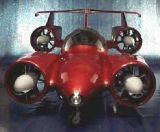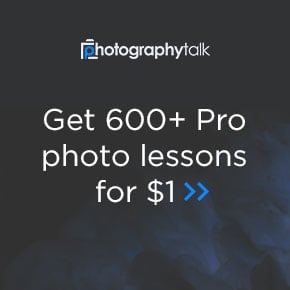- Forum
- General Discussion | Introductions | Off Topic Forum
- Photography General Discussion
- How long do digital cameras?
How long do digital cameras?
-
 Topic Author
Topic Author
- Dsoul
- New Kid On The Block
-
- Nikon D300s
- Followers: 5
- Posts: 46
-
Points:
0
-

- Indy 001
- New Kid On The Block
-
- Nikon D7000
- Followers: 4
- Posts: 50
-
Points:
0
Post #33056
Mechanically they'll last as long as any other camera built to a similar standard.
Of course they'll be obsolete way before that happens in a way that film cameras never will be - even an 'obsolete' film camera is capable of taking exactly the same quality image as a newer model.
My Nikon F3 takes the same quality photos as my Nikon F5 - if the film and lenses are the same.
Whereas before, film was the recording medium, sensors now perform that function. My Nikon D1 from 1999 still works perfectly, but the images it records are horrible compared to my D3 or D3x...
Film stock from the 1930's, 40's and 50's was nowhere near as good as film stock from the 1990s. Slower, grainier (if the same size and speed) and more expensive. And more combustible...
-

- effron
- Newbie
- Followers: 1623
-
Points:
129640
Post #33065
“Amateurs worry about equipment, professionals worry about money, masters worry about light, I just make pictures… ” ~ Vernon Trent
Post #33070
chasrich wrote: As far as the mechanical parts are concerned, I would think the digital would take more of a beating simply because there are more shots available for less cost. This morning I took over 500 shots trying out the new camera. I cannot imagine shooting that many images on film in the same length of time.
Looking at the boxes of negs in my attic and trying to work out how much of that junk was shot on the F3 bodies...
Probably about two thirds, so call that about 4,000 rolls of film a year for ten years x 36 then divided roughly by four (two cameras with B&W, one with fast colour, one with slow colour).
I think if you shot a certain way with film, you still tend to shoot the same way.
A job I did yesterday saw me shoot 130 frames to get what I needed...
It depends on what you need.
A wedding shot 20 years ago by me would have used four or five rolls of 35mm and two rolls of 120. Now I'd shoot 2-4,000 frames easily.
Not because it's digital and 'cheaper' but because people's expectations have changed.
Whereas I'd have shot the arrival of the B&G, one or two shots of the service, signing the register then the groups (on medium-format), then the cake-cutting and some formal portraits of the B&G at or near the reception venue, I'm now expected to cover the entire day from start to finish and have to employ a second-shooter to cover everything.
I remember when I started shooting 'reportage' style on B&W film, I started going through twenty or thirty rolls of 135-36 on a big wedding and thought "this can't last"...
That I initially passed those costs on to the client seemingly made no difference. Gradually though, things changed - more people started getting 'into' the money-making side of things and our gravy-train slowly pulled out of the station, leaving us standing alone and poor on the platform.
20 years ago I was charging between £1,500 and £3,000 for a wedding, depending on the package chosen by the client.
Guess what?
I'm still charging £1,500 - £3,000 for a wedding, only now I have to work 12-15 hours on the day and do all my own post-production.
-

- know it all
- New Kid On The Block
-
- Nikon D3X
- Followers: 21
- Posts: 12
-
Points:
0
Post #33120
-

- Cjarvis
- Lone Wolf
-
- nikon d3000 / nikon d200
- Followers: 37
- Posts: 190
-
Points:
10
Post #33121
arkady001 wrote: You're asking the wrong question for the wrong reasons...
Mechanically they'll last as long as any other camera built to a similar standard.
Of course they'll be obsolete way before that happens in a way that film cameras never will be - even an 'obsolete' film camera is capable of taking exactly the same quality image as a newer model.
My Nikon F3 takes the same quality photos as my Nikon F5 - if the film and lenses are the same.
Whereas before, film was the recording medium, sensors now perform that function. My Nikon D1 from 1999 still works perfectly, but the images it records are horrible compared to my D3 or D3x...
Film stock from the 1930's, 40's and 50's was nowhere near as good as film stock from the 1990s. Slower, grainier (if the same size and speed) and more expensive. And more combustible...
-

- Baydream
- Moderator
-
- Canoni/60D/70D/5DmkIII
- Followers: 388
- Posts: 11185
-
Points:
7280
Post #33256
Like any technology today. Tomorrow will be better, faster and less expensive. Of course, there will always be better technology at a higher price, too.Cjarvis wrote:
arkady001 wrote: You're asking the wrong question for the wrong reasons...
Mechanically they'll last as long as any other camera built to a similar standard.
Of course they'll be obsolete way before that happens in a way that film cameras never will be - even an 'obsolete' film camera is capable of taking exactly the same quality image as a newer model.
My Nikon F3 takes the same quality photos as my Nikon F5 - if the film and lenses are the same.
Whereas before, film was the recording medium, sensors now perform that function. My Nikon D1 from 1999 still works perfectly, but the images it records are horrible compared to my D3 or D3x...
Film stock from the 1930's, 40's and 50's was nowhere near as good as film stock from the 1990s. Slower, grainier (if the same size and speed) and more expensive. And more combustible...
My nikon D200 was a nice camera when it was new but now even the much lower grade D3100 far out dose its I/Q but every time I look at geting a new one it seems something beter is just around the bend.
Check out this thread and see what I mean.
www.photographytalk.com/index.php?option...2176&Itemid=54#32237
Shoot, learn and share. It will make you a better photographer.
fineartamerica.com/profiles/john-g-schickler.html?tab=artwork
- Forum
- General Discussion | Introductions | Off Topic Forum
- Photography General Discussion
- How long do digital cameras?
Latest Reviews
The Sony a9 III is a powerhouse professional-grade camera. The question is, should it be the next item in your camera bag? Find out if it’s worth the money in this comprehensive review!
The Hasselblad 907X 50C certainly isn’t the camera for everyone. However, this medium-format system is ideal for many professional photographers (and videographers!)
The Olympus Pen E-P7 is an affordable micro four thirds mirrorless camera with 4K video capabilities, a 20.3MP sensor, and 121 focus points, making it a solid entry-level camera for beginners.
The Panasonic G9 II is a 25.2-megapixel micro four thirds camera with numerous features that make it punch out of its weight class, like 779 AF points, 5.8K video, and weather sealing.
Forum Top Posters
-
1TCav 8 posts
-
2Hassner 4 posts
-
3Sandy Smith Photos 4 posts
-
4CharleyL 3 posts
-
5Street Shark 3 posts
-
6Scotty 3 posts
-
7Choff 3 posts
-
8Prago 3 posts
-
9great.crea... 2 posts
-
10Don Granger 2 posts
Latest Articles
The Sony a9 III is a powerhouse professional-grade camera. The question is, should it be the next item in your camera bag? Find out if it’s worth the money in this comprehensive review!
Wedding photography trends come and go, but that doesn’t mean they aren’t exciting at the moment! This year’s top trends include old and new technologies and techniques to create lasting memories.
The Sony ZV-1 Mark II is a nice update to the ZV-1 and expands Sony’s lineup of cameras for vlogging and content creation. Is it the right camera for you, though? Let’s find out!
Having a solid client management system allows you to build a more sustainable business with a larger number of repeat clients. But how do you do that? Let’s find out!
Canyon photography is an interesting niche of landscape photography that has some distinct challenges like harsh light and shadows. But with the right preparation, you can capture epic shots!
The Hasselblad 907X 50C certainly isn’t the camera for everyone. However, this medium-format system is ideal for many professional photographers (and videographers!)
The process is actually quite straightforward if you want to print from iPhone. But, if you need a little guidance, this guide is what you need! Dive in and learn how to print smartphone photos!
The Fuji X-T5 is a mid-range camera ideal for beginners who need a high-powered camera body to professionals looking for a solid second camera - and many uses in between!















